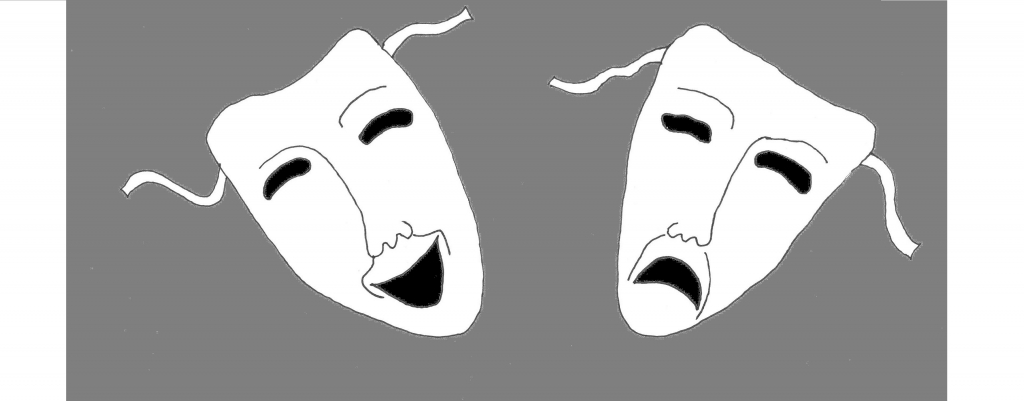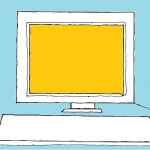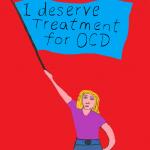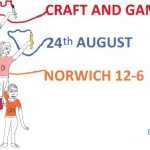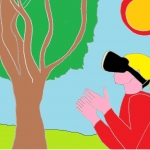Have you heard the joke about OCD?
September 5th 2014
“If I had a penny for every time someone said I have OCD, I’d have 967274 pence.”
“I do not have an OCD over tidiness. I just wanted to clear that up.”
“The doctor gave me the all-clear on my OCD today. I couldn’t thank him enough.”
“I have CDO. It’s like OCD, but in alphabetical order – like it should be.”
“I have OCD and ADD so everything has to be perfect… But not for long.”
The likelihood that you have heard an OCD joke, or even told one yourself, is fairly high.
Obsessive Compulsive Disorder, a serious anxiety related condition, was once ranked in the Top Ten Most Debilitating Illnesses by the World Health Organisation, and 1-2% of the UK population are thought to be affected by the condition: so why is it the butt of so many jokes?
The term OCD is so often taken out of context; used by many as a way to describe a casual quirk someone holds – a fondness for keeping things tidy or in a particular order, or for being a ‘germaphobe’ – rather than the serious condition it is.
The misconception that the disorder is merely a matter of liking things tidy, or washing your hands repeatedly, is a myth, and only reflects a small proportion of what the illness is truly about.
In the last few days retailer Paperchase have removed a hand cleaning product called OCD from stores after it was accused of mocking suffers of the condition.
The director of Time to Change, Sue Baker, said such stigmatising products as OCD sends out a very poor message, and can cause serious harm to sufferers.
“Products that poke fun at or stigmatise people with mental health problems can cause very real harm by sending the message that conditions such as OCD are trivial and even humorous, making it harder for people affected by these issues to speak out and seek help for them.”
CEO of mental health charity Rethink, Mark Winstanley, added: “OCD is not a funny personality quirk, it is a mental illness which can be very debilitating and it affects around 1.2 per cent of the population.
‘The last thing people who have the condition need to see is it trivialised in this way.
‘Paperchase would never sell a product that made fun of a physical illness like diabetes or heart disease, so why should people with mental illness have to put up with it?”
This comes three years after Selfridges was blasted by mental health campaigners for selling The Obsessive Compulsive Disorder Chopping Board.
Online shopping site Cafe Press have a whole section of OCD branded gifts, whilst popular joke site Sickipedia have a section dedicated to OCD related jokes, whilst Buzzfeed have lists such as ’22 Things Only People With OCD Will Understand‘ and ’19 Things That Will Drive Your OCD Self Crazy’.
The Twitter account OCD Porn, which has over 33 thousand followers, has also caused some online aggravation with its portrayal of the condition, whilst simply searching OCD on Twitter can produce some frightening results.
OCD suffer Laura Mcllveen believes that such a page is a “disgrace” and makes a mockery of the condition and those who suffer from it.
“I think the page is a disgrace.
“Once again it is the use of OCD as a term to describe liking things in a certain way.
“It makes a mockery of OCD suffers, and the sad thing is the amount of people that support that through following the page.”
Even professional comedians have gotten in on the act, with Manchester-born comic Jason Manford receiving online criticism for a OCD related joke he made on Twitter last week.
The comedian, who claimed it was “just plain fun”, was accused of ignorance from Twitter users following the incident.
Manford responded to one Twitter user’s complaint by saying: “There’s comedy to be had about everything. It’s the intent which is important not subject matter.”
Although Manford’s joke was mild compared to other OCD related jokes – and he is certainly not the first comedian to make them – it is still another example of a lackadaisical portrayal of the condition in a high profile environment.
Though they say they mean no harm – like the comedians joke, the lists or Twitter profiles – such misconceptions only add fuel to the OCD fire.
The anxiety condition does not seem to get the respect of other serious conditions, about which jokes on are severely frowned upon, yet OCD is seen as an acceptable, casual slang term – it just does not seem right.
Humour can be a fantastic therapeutic tool, but where do we draw the line between light-hearted fun and just plain ignorance?
Type OCD into a search engine or Twitter and I think you will find the answer.
